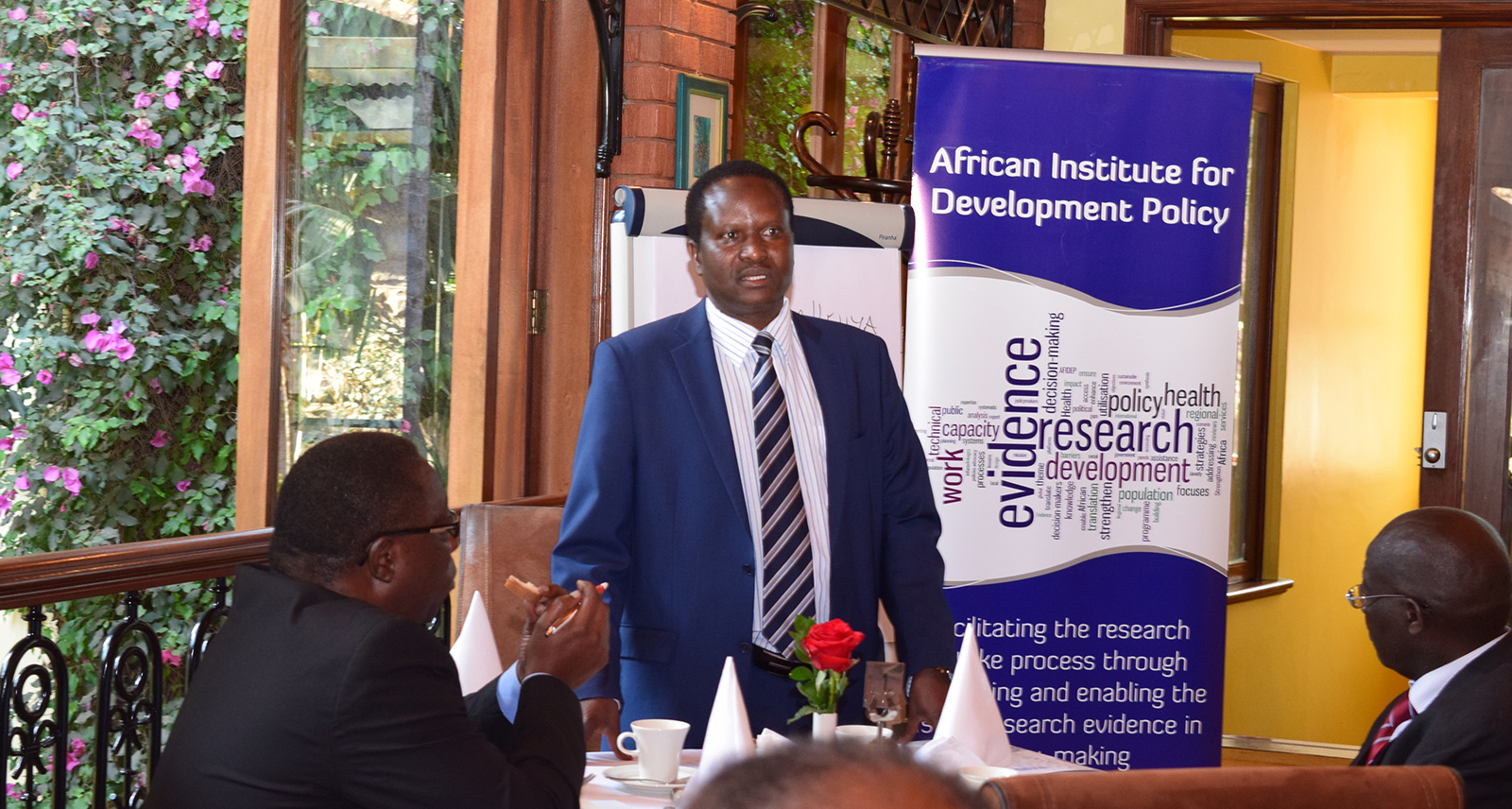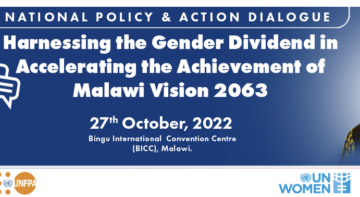News

Officials from the Ministry of Health in Kenya who completed a course in Evidence-Informed Policy-Making (EIPM) graduated this morning at a colourful ceremony held at the Fairview Hotel in Nairobi. A total of 34 officials participated the course out of whom 13 authored policy briefs on various urgent health challenges in Kenya.
The graduation ceremony was presided over by Dr. Peter Kimuu, who represented the Director of Medical Services, Dr. Jackson Kioko. The EIPM training was offered by AFIDEP and partners through the SECURE Health Programme. The Programme, whose full title is Strengthening Capacity to Use Research Evidence in Health Policy, begun and 2013, with funding from the UK’s Department for International Development (DFID).
While giving his remarks at the event, Dr. Charles Nzioka, the Head, Health Research Unit, Ministry of Health, recalled the beginning of the partnership between AFIDEP and the Ministry of Health. He noted that despite the Government recognising the critical role of research and other evidence in building a strong health care system as stipulated in the Kenya Health Policy 2014-2030, evidence is still not optimally used in health decision-making in Kenya.
He recalled that a baseline study carried out in 2014 showed that there were both systemic and individual barriers to evidence use, pointing to the need to build technical capacities at both levels in order to address these barriers. Institutional barriers identified included lack of a mechanism for accessing evidence; lack of institutional linkages with researchers and the absence of guidelines for evidence use as well as poor supportive systems, including library and Internet services. He therefore welcomed the recently published Guidelines for Evidence Use in Policy-Making, that have been produced by AFIDEP in partnership with the Ministry of Health. These Guidelines were disseminated at this event.
Dr. Rose Oronje, the Director of Science Communications and Evidence Uptake at AFIDEP, congratulated those graduating saying: “The good news today is not only that you have all graduated, but also that you have also become champions of evidence use in the Ministry of Health. We therefore hope to call upon some of you to share your skills with other colleagues from the counties when the time comes.”
Dr. Peter Kimuu noted that the Ministry of Health appreciates the capacity building done by the SECURE Health Programme through AFIDEP’s leadership. He noted that use of evidence in policy-making is a challenge in many countries and that Kenya is not an exception. “It is therefore with great pleasure that I stand here today to preside over the graduation of 34 Ministry of Health staff who have been trained in Evidence Informed Policy-Making,” he said. He noted that when personnel in the health sector acquire skills to access, appraise, synthesise and apply evidence in policy-making, this will contribute to the strengthening of health policy and practice and ultimately to the improvement of health outcomes for the people of Kenya.
He appreciated the issuance of the Guidelines for Evidence Informed Policy-Making as an important step that will ensure that all health experts in Kenya can access requisite guidance and skills to find evidence, assess its quality and synthesise it into clear policy recommendations applicable in decision-making.
Those who completed the course presented key findings of their policy briefs to participants. The briefs focused on various topics among them: strengthening the health information system; strengthening community health workforce; tackling rising incidences of non-communicable diseases; embracing information and communication technology to improve health care quality; expanding access to healthcare services to the poor and marginalised; and improving water safety surveillance.
SECURE Health is a consortium partners include FHI 360, ECSA Health Community, and the Consortium for National Health Research (CNHR)-Kenya. It is implemented in both Kenya and Malawi. In Malawi, the other consortium partner is the College of Medicine at the University of Malawi. The UK’s Parliamentary Office of Science and Technology is a collaborator on the programme.
Related Posts





